Introduction

I am doing 230kmph. And, I know the bike can go faster still. But, I back off because I can barely hold on. The windblast is intense. The turn of speed, intoxicating. And the noise, well, it’s fabulous. This is the brand new 2017 Triumph Street Triple RS. And I am charging down the main straight at the legendary Circuit de Catalunya.
The lean machine

Seconds later, I sit up, gently squeeze the front brake and bang down four gears to second with no care in the world. The bite, power and feel from that front Brembo brake setup and its top-notch M50 monobloc callipers, and of course, the seamless functioning of the slipper clutch eliminates all sorts of drama one might associate with such severe change in speed. It just takes the anxiety and effort away, and replaces it with serenity and joy.

Turn one, a tight right-hander, does feel intimidating initially. But when you are on it and you start turning the bike in, you suddenly feel the track growing around you, and the time slowing down to let you choose the line of your liking around the corner. And why just turn one; the new Street Triple RS makes tackling every corner on the circuit – the fast and never-ending C3, the tightening C5, and even the new Mickey Mouse like new chicane – feel like child’s play. And we weren’t taking things easy, mind.

This is all down to the new bike’s outstanding front-end grip and feel, its lovely and neutral weight distribution and its willingness to lean, lean and then lean some more. The new Street Triple RS is one of those motorcycles that urges you to push it deeper into corners, lean it harder into bends and get on the gas sooner and harder every time. And rarely – if ever – does it feel scary or daunting. It feels like a much smaller, lighter and playful motorcycle than its brief.
The ingredients

To get here Triumph has made big changes to the 2017 Street Triple RS compared to the current bike. The chassis and swingarm are new; the latter with its increased torsional stiffness (and better lateral flexibility, says Triumph) and revised pivot positioning, makes for a quicker responding but more stable cornering setup. Equal (if not more) credit here goes to the new suspension.

Up front the RS runs fully adjustable – for everything from preload to compression and rebound damping – Showa Big Piston Forks and the rear is handled by an Ohlins STX40 rear monoshock, which again is completely adjustable, and has been designed specifically for the new RS. Not to forget, the super grippy Pirelli SuperCorsa SP tyres. These are tremendous. And if it’s dry grip you want, you really can’t do better.
There’s also some smart electronics backing the hardware; a real confidence booster in my book, especially around an unknown track. The new Street Triple RS comes with five riding modes. There’s Rain. Road, Sport, Track and Rider. The power and torque ratings remain identical in all modes. What changes, is the throttle map, and the ABS and traction control settings.

‘Rain’ is the softest (or laziest, if you will), and things get sharper and more exciting as you go up the modes till you select ‘Track’. ‘Rider’ meanwhile allows you to pick and choose the default settings from any of the modes, and mix and match. So, one can choose the ‘Sport’ throttle map but couple it with ABS settings for ‘Road’ (more sensitive) and TC for ‘Rain’ (maximum amount of intervention) for a potent but safe ride. Our pick for the road (we did have some road riding thrown in as well) would be ‘Sport’, and on the track, nothing works as well as, well, ‘Track’.
The heart

The intuitive handling, however, is only partly responsible for the love we are showering over the new Street Triple RS. The engine – new for the Street Triple lineup and derived from the Daytona 675 – is equally agreeable. Compared to the Daytona, the new 765cc inline triple runs a bigger bore and longer stroke. It has newer parts with lightened and friction busting improvements. Just for the record, the new 765 makes 123bhp and 77Nm on the RS and is mated to a slick shifting 6-speed gearbox.
What the spec sheet doesn’t tell you is the high level of refinement on this new engine. The motorcycle sounds and feels smooth and easy revving from the word go. The throttle response is beautifully measured too. It is quick and crisp, but it never feels snatchy, even in a low-gear-high-rev situation. And that 77Nm of torque is laid thick and flat.
The Street Triple RS has my kind of mid-range wherein short-shifts and even engine speeds as low as 4,000rpm don’t leave you wanting at all. Just roll on the throttle and see the horizon closing in on you with unexpected swiftness. Then you hit 6,000rpm and the RS dials up its musical performance. The sound is racy and brawny at the same time. There’s also a perceptible step up in performance.
Past 8,000rpm the RS’ character turns devilish. The bike sounds louder, visceral and more exhilarating now and the crescendo only climaxes at the rev limiter. But, it’s not just the sound that will make you want to keep revving the Street Triple RS beyond 8,000rpm; the jump in performance is equally exciting and tempting. The RS feels properly fast.
The feel good factor

This new Triumph has a high feel good factor too. Firstly, the styling is more palatable. The bug-eyed headlights have a softer, more digestible shape, and these are all LED units. It has a racier stance helped by rear-end styling that’s sleeker than before and seems heavily influenced by the Daytona. All the body panels on the RS are new too with higher levels of finish all round.

The highlight here though is the new TFT screen. The 5-inch unit is an all colour, rich on information and easy to use piece. It has different visual themes linked to the riding modes; it is tilt adjustable; and when the contrast setting is left in automatic, it switches between dark and light illumination depending on the ambient lighting.

The screen also throws up info on trip distances, average and instantaneous fuel consumption, distance to empty, service due in kilometres and time, and there’s an onboard lap timer as well. While one has to shuffle between the information listed above, the TFT has the speedo and tacho readings, gear position, fuel level, time and ambient temperature showing at all times.This new Triumph has a high feel good factor too. Firstly, the styling is more palatable. The bug-eyed headlights have a softer, more digestible shape, and these are all LED units. It has a racier stance helped by rear-end styling that’s sleeker than before and seems heavily influenced by the Daytona. All the body panels on the RS are new too with higher levels of finish all round.
The conclusion

I know what you might be thinking: How is that this bike has no negatives at all? It’s something I have been pondering over ever since I got off the bike. It’s especially troubling for me given I have this great virtue of finding faults with almost everything. My wife will vouch for that.
So, after all the ruminating, the one thing that the RS is awful at is offering a comfortable ride. The seating ergonomics, and in fact the seat cushioning, is spot-on. Even after hours in the saddle, I had no complaints. But, when we rode the bikes on the road in the default factory setup – and the roads around Spain are incredible – the stiffness of the suspension, especially the front, made for a truly uncomfortable ride over anything but perfect tarmac. Now, I know it has a fully adjustable suspension – and Triumph has a ‘comfort setup’ guide as part of the owner’s manual for this bike – but, if launched in India with this setup as stock, it is bound to draw some ire.
This apart, the new Triumph Street Triple RS is one of the finest motorcycles I have ridden lately. It is fast, it’s precise, it’s agile, it sounds great, and to top it all, it is incredible fun. What’s more, with the suspension stiffness dialed down, it will make for a great commuting, touring, and as we have harped about in this piece, track motorcycle. The RS will be launched in India around September and expect it to carry a price tag of around Rs 10.5-11 lakh.

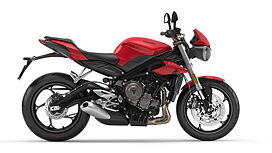
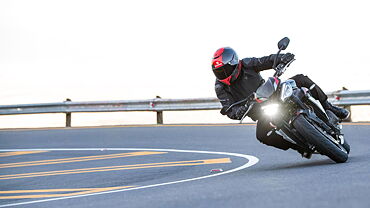
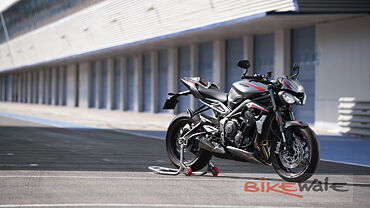
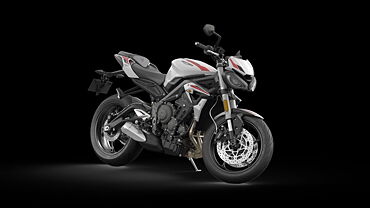
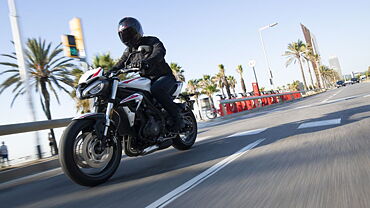
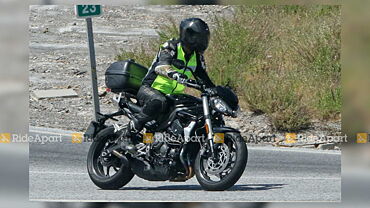

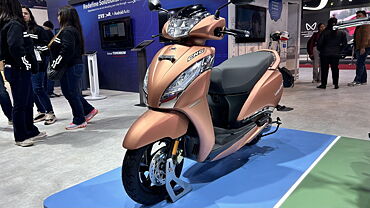
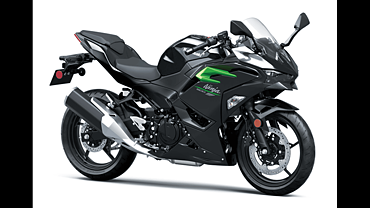
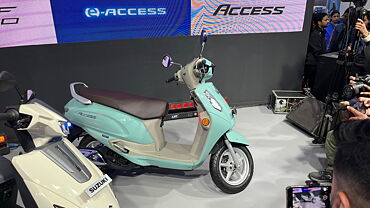
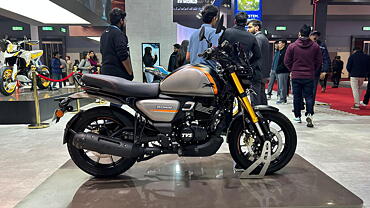

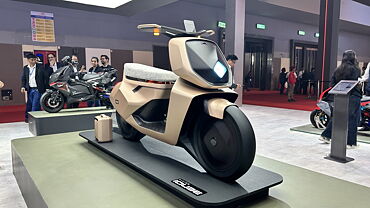
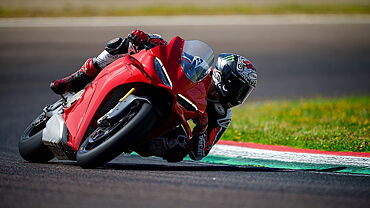
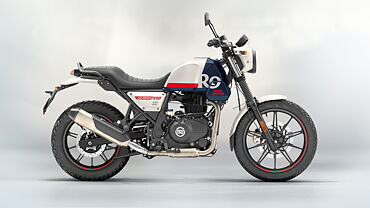
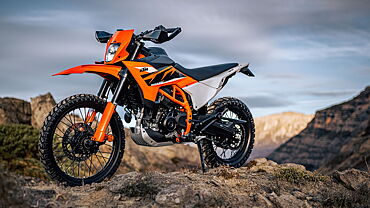





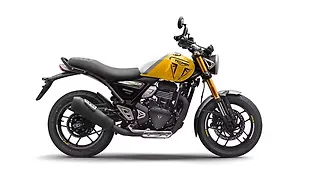

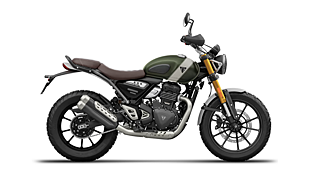

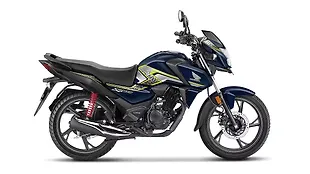

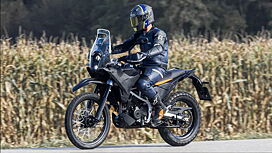

![KTM 390 Adventure X [2025] KTM 390 Adventure X [2025]](https://imgd.aeplcdn.com/272x153/n/cw/ec/190885/390-adventure-x-2025-right-side-view.jpeg?isig=0&q=80)